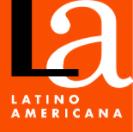Multisited ethnography, digital ethnography: reflextions about the extensions of fielworkd and reflexivity
Keywords:
multi-site ethnography, digital ethnography, research designAbstract
In this work I develop a reflection on the idea of Multisited Ethnography proposed by George Marcus and I suggest extending it to the digital world. Research is based on a field experience conducted between 2003 and 2008 in order to understand the modalities of identity politics of Mapuche activists in Argentina and Chile. The first step in the research was to find in the internet the enunciation of Mapuche identity politics, analyze and interpret texts , images and sound. I identified the media practices and participated as part of the audience, I also witnessed the articulation of a collective group in an imaginary unity. Later on, I found a way to follow the activists in the global community and access some events organized by them. With the material found on the web, the marks of the militants´ presence in global sanctuaries, co-productions and alliances with ecological and human rights networks and my own field records I formed a constellation of support points to account for the articulation between the global and the local with the specificity it has achieved in the construction of the cultural activists.
References
Agamben, Giorgio (2011). “¿Qué Es Un Dispositivo ?”, Sociológica, año 26, número 73, pp. 249-264.
Althabe, Gerard (1999a). "Hacia una antropología del presente" en: Althabe, Gerard y Schuster, Félix (comp.), Antropología del Presente, Buenos Aires, Edicial, pp 13-35.
Althabe, Gerard (1999b). "Lo microsocial y la investigación antropológica de campo", en: Althabe, Gerard y Schuster, Félix. (Comp.), Antropología del Presente. Buenos Aires, Edicial, pp. 61-68.
Álvarez, Sonia; Dagnino, Evelina, y Escobar, Arturo (1998). "The Cultural and the Political in Latin American Social Movements", en: Cultures of politics, Politics of Cultures: Re-Visioning Latin American Social Movements. México, Westview Press.
Appadurai, Arjun (1991). La vida social de las cosas. Perspectiva cultural de las mercancías. México DF, Grijalbo.
Appadurai, Arjun (2005). “Memoria, Archivo y Aspiraciones”, en: Gutman, Margarita (Ed.), Argentina Construir Bicentenarios. Buenos Aires, Fundación Octubre - Caras y Caretas - The New School Observatorio Argentina.
Ardèvol, Elisenda (1998). “Por Una Antropología de La Mirada: Etnografía, Representación y Construcción de Datos Audiovisuales”, Revista de Dialectología y Tradiciones Populares, 53(2), pp. 217–40.
Ardèvol, Elisenda (2005). “Cyberculture: Anthropological perspectives of the Internet”, Using anthopological theory to understand media forms an practices workshop, Loughborough, documento electrónico: https://eardevol.files.wordpress.com/2008/10/cyberculture.pdf
Ardèvol, Elisenda (2013). “Cultura Digital y Prácticas Creativas. Tientos Etnográficos en Torno a la Cultura Libre”, IN3 Working Paper Series, 47, documento electrónico: http://www.uoc.edu/ojs/in-dex.php/in3-working-paper-series/article/view/n13-Ardèvol
Ardèvol, Elisenda y Gómez Cruz, Edgard (2012). “Cuerpo privado, imagen pública: el autorretrato en la práctica de la fotografía digital, Revista de Dialectología y Tradiciones Populares, 67(1), pp. 181–208, documento electrónico: http://rdtp.revistas.csic.es/index.php/rdtp/article/view/270/270
Ardévol, Elisenda y Estalella, Adolfo (2010). “Internet: instrumento de investigación y campo de estudio para la antropología visual”, Revista Chilena de Antropología Visual, número 15 , pp. 1-21, documento electrónico: http://www.antropologiavisual.cl/imagenes15/imprimir/ardevol_&_esta-lella_imp.pdf
Ardèvol, Elisenda; Estaella, Adolfo y Domínguez, Daniel (2008). “La mediación tecnológica en la práctica etnográfica”, documento electrónico: http://mediaccions.net/wp-content/uploads/05_vo-lumen_mediaciones.pdf
Ardèvol, Elisenda y Pinyol, Eva (2009) “La domesticación de Internet”, documento electrónico: https//www.photographicsocialvision.org/domestic/pdf/elisenda_ardevol_y_eva_pinyol_cast.pdf
Ardèvol, Elisenda y Muntañola, Nora (2004). Representación y cultura audiovisual en la sociedad contemporánea. Barcelona, Editorial UOC.
Baym, Nancy y Markham, Annette (2009). “Introduction: Making smart choices on shifting ground”, en: Markham, Anette y Baym, Nancy (Eds.), Internet inquiry: Conversations about method. Thou-sand Oaks, CA, US, Sage Publications, Inc. pp. vii-xix, documento electrónico: https://www.researchgate.net/publication/232440332_Introduction_Making_smart_choices_on_shifting_ground
Bazin, Laurent y Selim, Monique (2002). “Etnografía, cultura y globalización. Problematizaciones antropológicas”, documento electrónico: https://www.researchgate.net/profile/Monique_Selim/publication/282171527_Etnografia_cultura_y_globalizacion_problematizaciones_antropologicas_del_mercado/links/57dbbbf608ae4e6f18445601/Etnografia-cultura-y-globalizacion-problemati-zaciones-antropologicas-del-mercado.pdf
Beaulieu, Anne (2004). “Mediating Ethnography: Objectivity and the Making of Ethnographies of the Internet”, Social Epistemology, 18(2–3), pp. 139–63.
Bellier, Irene (2012). “La revitalización de los pueblos indígenas en la globalización”, en: Alejandro Bilbao (comp), Creación, Identidad y Mundo en los Estados de la Globalización. Campo psíquico y Lazo Social.Valparaíso, Editions universitaires de Valparaiso, pp.43-58, documento electrónico: https://halshs.archives-ouvertes.fr/halshs-00670651, acceso 05/12/2018
Briones, Claudia (1998). "(Meta) Cultura del Estado-Nación y Estado de la (Meta) Cultura", documento electrónico: http://www.dan.unb.br/images/doc/Serie244empdf.pdf
Couldry, Nick (2004). “Theorising Media as Practice”, Social Semiotic, Volume 14, Number 2, Au-gust 2004, pp. 115-132.
Escobar, Arturo (1994). “Welcome to Cyberia. Notes on the Anthropology of Cyberculture”, Current Anthropology, Vol. 35, Nº 3, pp. 211-231.
Escobar, Arturo (2005). “Bienvenidos a Cyberia. Notas para una antropología de la cybercultura”, Revista de Estudios Sociales no. 22, pp. 15-35.
Fabian, Johannes (2002). "Virtual Archives and Ethnographic Writing", Current Anthropology, Vol 43, Nº5.
Falzon, Mark-anthony (2009). “Introduction”, en: Falzon, Mark-anthony (comp.) Multi–sited Ethnography: Theory, Praxis and Locality in Contemporary Research. New York, Ashgate Publishing, Ltd.
Gallagher, Kathleen y Freeman, Barry (2011). “Multi-site ethnography, hypermedia and the productive hazards of digital methods: A struggle for liveness”, Ethnography and Education, 6:3,pp. 357-373.
Grillo, Oscar (2005). “Para gestar el 'LIWENMAPU' Mapuches, política de identidad y un proyecto de desarrollo en la Provincia del Neuquén, Argentina”, en: Alejandro Isla y Paula Colmegna (comp.), Política y Poder en los procesos de Desarrollo. El papel de los antropólogos. Buenos Aires, Editorial de las Ciencias – FLACSO.
Grillo, Oscar (2007). “Políticas de Identidad en Internet. Mapuexpress: imaginario activista y procesos de hibridación”, Razón y Palabra, N° 54, documento electrónico: http://old.razonypalabra.org.mx/anteriores/n54/ogrillo.htmlGrillo, Oscar (2008). “Internet como un mundo aparte e Internet como parte del mundo”, en: Miriam Cárdenas y Mora, Martín (coord.), Ciberoamérica en Red – Escotomas y fosfenos 2.0. Barcelona, Editorial UOC.
Grillo, Oscar (2011). “Azkintuwe: prácticas mediáticas y políticas de identidad en el activismo mapuche”, en: Quiguanás, Vilma Almedra Vilma Almendra, Diana Giraldo Cadavid y Rocío Gómez Zúñiga (comp), Tierra y silicio: cómo la palabra y la acción política de pueblos indígenas cultivan entornos digitales. Santiago de Cali, Programa Editorial de la Universidad del Valle- Colombia.
Grillo, Oscar (2013). Aproximación Etnográfica al activismo Mapuche. A partir de Internet y tres viajes de trabajo de campo. Buenos Aires, IDES- Editorial Al Margen.
Guber, Rosana (2014). “Introducción”, en: Guber, Rosana (Ed.), Prácticas etnográficas. Ejercicios de reflexividad de antropólogas de campo. Buenos Aires, IDES Miño y Dávila.
Hage, Ghasan (2005). “A not so multi-sited ethnography of a not so imagined community”, Anthropological Theory, 5(4), pp. 463–475, documento electrónico: https://doi.org/10.1177/1463499605059232
Hall, Stuart (1996). “Who Needs `Identity`?”, en: Hall, Stuart y du Gay, Paul (Ed.), Questions of Cultural Identity. London, Sage Publications.Hine, Christine (2000). Virtual Ethnography. London, Sage Publications.
Hine, Christine (2004). Etnografía Virtual. Barcelona, Editorial UOC- Universitat Oberta de Catalunya.
Hine, Christine (2005). Virtual Methods: Issues in Social Research on the Internet. New York, Berg Publishers.
Hine, Christine (2007). “Multi-Sited Ethnography as a Middle Range Methodology for Contempo-rary STS”, Science, Technology, & Human Values, Volume XX, pp. 652-671.
Hine, Christine (2015). Ethnography for the Internet: Embedded, Embodied and Everyday. London, Bloomsbury Academic.
Jaramillo, Pablo (2013). “Etnografías en transición: escalas, procesos y composiciones”, Antípoda Revista de Antropología y Arqueología, N°16, pp 13-22, documento electrónico: http://www.scielo.org.co/pdf/antpo/n16/n16a02.pdf.
Laclau, Ernesto (2005). La razón populista. Buenos Aires, Fondo de Cultura Económica.Leander, Kevin y Mkim, Kelly (2010). “Tracing the Everyday 'Sitings' of Adolescents on the Internet: a strategic adaptation of ethnography across online and offline spaces”. Education. Communication & Information, pp. 211-240.
Lins Ribeiro, Gustavo (2004). "El espacio-público-virtual", en: García Canclini, Néstor (comp), Reabrir Espacios Públicos. Políticas Culturales y Ciudadanía. México, Universidad Autónoma Metropolitana - Plaza y Valdés Editores, pp. 55-73.
Marcus, George (1995). “Ethnography in/of the World System: The Emergence of Multi-Sited Ethnography”, Annual Review of Anthropology, Vol. 24, pp. 95-117, documento electrónico: document electrónico: https://doi.org/10.1146/annurev.an.24.100195.000523
Marcus, George (2001). “Etnografía en/del sistema mundo. El surgimiento de la etnografía multilocal”, Alteridades, vol. 11, núm. 22, pp. 111-127.
Marcus, George (2008). “The End(s) of Ethnography”, Cultural Anthropology 23(1), pp. 1–14.
Marcus, George (2012). “Foreword”, en: Boellstorff, Nardi, et. al., Ethnography and Virtual Worlds: A Handbook of Method. Princeton, Princeton University Press, documento electrónico: http://www.jstor.org/stable/j.cttq9s20
Marcus, George (2018). “Etnografía Multisituada. Reacciones potencialidades de un Ethos del método antropológico durante las primeras décadas de 2000”, Etnografías Contemporáneas, año 4, Vol. 7, documento electrónico: http://www.unsam.edu.ar/revistasacademicas/index.php/etnocontemp/article/view/44
Martín-Barbero, Jesús (2004). Oficio de Cartógrafo. Travesías latinoamericanas de la comunicación en la cultura. Buenos Aires, Fondo de Cultura Económica.
Mato, Daniel (2000). "Desfetichizar la "globalización": basta de reduccionismos, apologías y demonizaciones, mostrar la complejidad y las prácticas de los actores." En: Mato, Daniel (comp) Estudios Latinoamericanos sobre Cultura y Transformaciones Sociales en Tiempos de Globalización. Biblioteca Virtual de CLACSO, documento electrónico: http://www.clacso.edu.ar/~libros/mato2/mato.pdf.
Mega, Magaly, Mege, Pedro, Toledo, Patricio, Carreño, Gastón, Báez, Christian y Alvarado, Margarita (2005). "Fotografía Mapuche: construcción y montaje de un imaginario". Santiago de Chile, Instituto de Estética - Pontificia Universidad Católica de Chile, documento electrónico: http://www.rchav.cl/fotografia_mapuche.htm
Miller, Daniel y Slater, Don (2000). The Internet. An Ethnographic Approach. Oxford, New York, BERG.
Miller, Daniel y Horst, Heather (2015). “O Digital e o Humano. Prospecto para uma Antropologia Digital”, Parágrafo, pp. 91-111, document electrónico: http://revistaseletronicas.fiamfaam.br/index.php/recicofi/article/view/334
Pink, Sarah (2006). The Future of Visual Anthropology. Engaging the senses. London, Routledge.
Strathern, Marilyn (1994). “Comments to Welcome to Cyberia”, Current Anthropology, Vol. 35, Nº 3, documento electrónico: https://www.academia.edu/24265891/Welcome_to_Cyberia_Notes_on_the_Anthropology_of_Cyberculture_by_Arturo_Escobar
Strauss, Sara (1999). “Locating yoga. Ethnography and transnational practice”, en: Vered, Amit (Ed.), Constructing the Field. Ethnographic Fieldwork in the ContemporaryWorld. London, Routledge.
Ulloa, Astrid (2005). “Las representaciones sobre los indígenas en los discursos ambientalistas y de desarrollo sostenible”, en: Mato, Daniel (Ed.), Políticas de economía, ambiente y sociedad en tiempos de globalización. Caracas, Facultad de Ciencias Económicas y Sociales, Universidad Central de Venezuela, pp. 89-109.
























